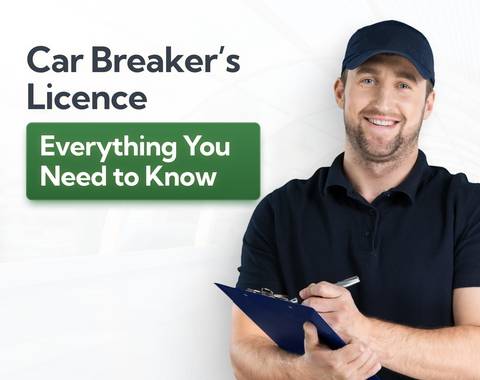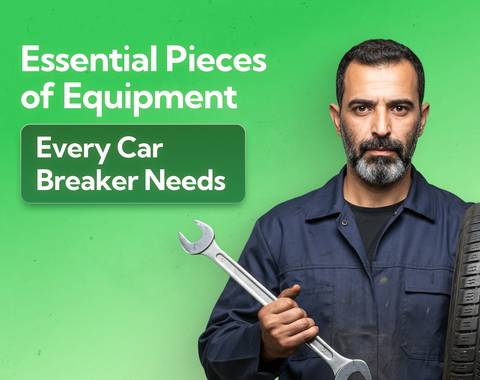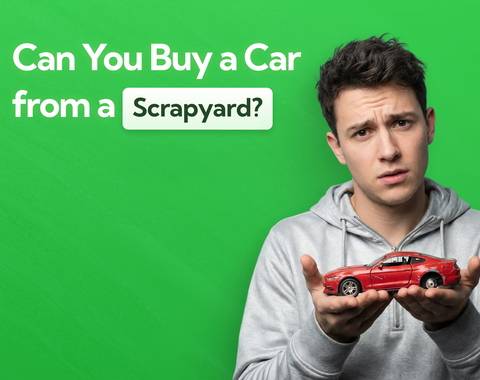14 Easy Steps to Sell a Classic Car: Guide for 2025
Classic cars sometimes appreciate in value. If you have one in your garage, you could be sitting on tens or hundreds of thousands of pounds. In this article, I’ll show you exactly how to sell a classic car and get the most for it.
Last updated: 23rd October, 2025

Award-winning CEO driving growth and social impact across automotive, recycling, and technology-led enterprise platforms.
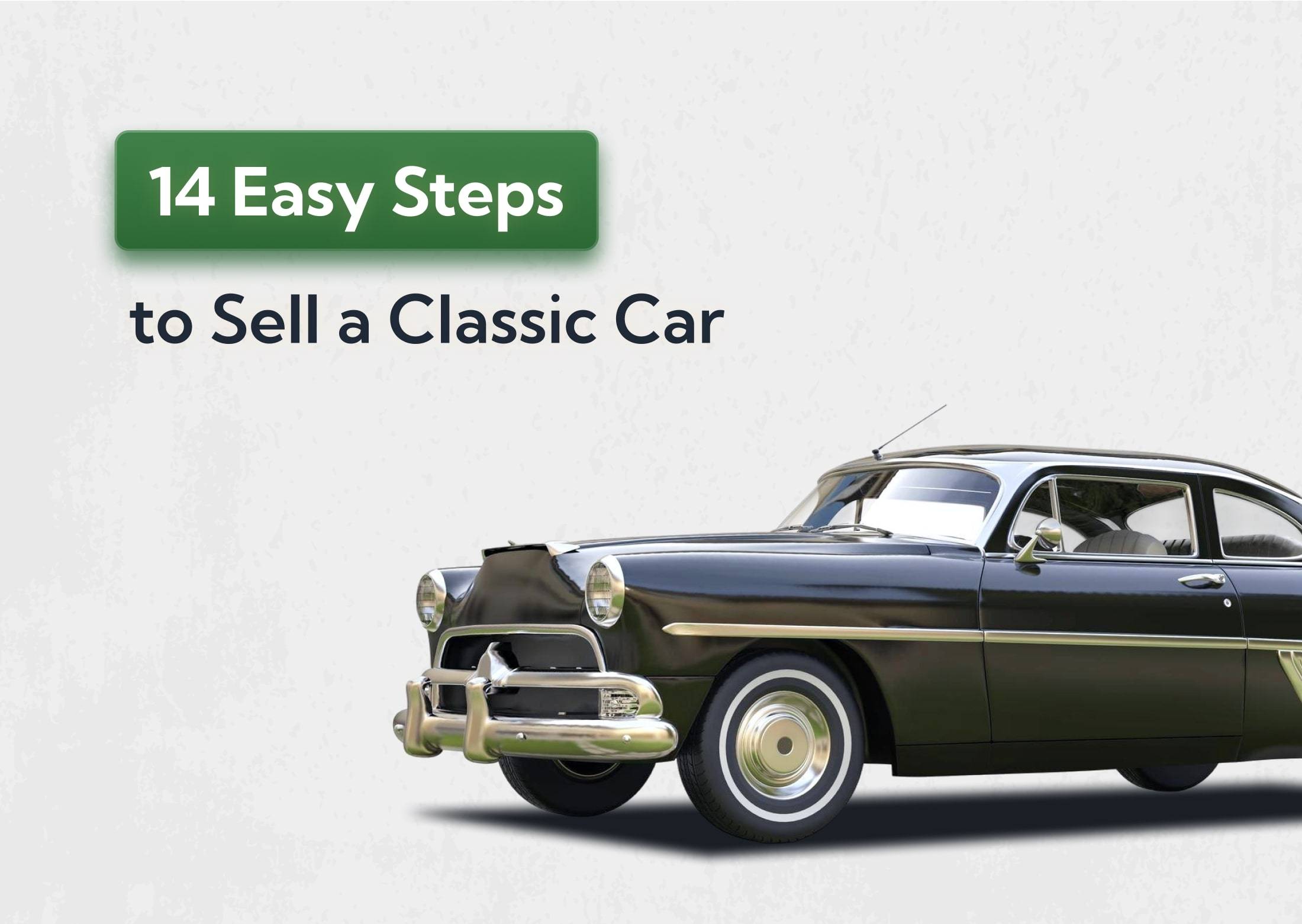
Listen to this story
For classic car owners, the value almost always goes beyond financial. Maybe you inherited it from a parent. Or you bought it out of nostalgia.
The sentimental attachment is strong with these cars. So if there’s value in it, you definitely want to find it a good home rather than sending it to the scrap yard.
The good news is, plenty of collectors and fanatics would feel the same way. You don't have to explain it to them; they already know the value.
You do have to find them, though. And you have to carry out the sale and transfer of ownership the right way.
That's what this article's here for. To help you sell your classic car without any stress.
What's in this article
- 1. Selling Your Classic Car: A Quick Look
- 2. How to Sell Your Classic Car
- 2.1 Prepare Your Car for Sale
- 2.2 Gather Documentation
- 2.3 Determine a Realistic Price
- 2.4 Consider Getting an Expert Appraisal
- 2.5 Take High-Quality Photos
- 2.6 Write an Accurate Description
- 2.7 Choose the Right Selling Platform
- 2.8 Advertise Strategically
- 2.9 Respond Promptly to Enquiries
- 2.10 Negotiate the Sale
- 2.11 Finalise the Sale
- 2.12 Payment and Delivery
- 2.13 Transfer Ownership
- 2.14 Cancel Insurance and Registration
- 3. Wrapping Up
Selling Your Classic Car: A Quick Look
One thing is for sure: the UK has its fair share of classic car collectors. That doesn't make listing one on the market easy by any means. It also doesn't guarantee you your desired return.
Classic cars are unique — this isn't like selling your car to a dealership. Each marque and model has its own quirks. And each acts differently in today's market.
One year's model could be worth something completely different from the prior year's. A certain color could add additional value (perhaps it was used in an old movie).
That said, a well-kept classic car in solid condition will always be attractive (respective to its own field). And with the right choices and sales tactics, you stand to make a decent chunk of change.
Selling classic cars requires patience and due diligence. To get the best return on investment, you'll need to do some research and invest time into finding the right buyer.
How to Sell Your Classic Car
The process is fairly similar whether you're selling a car that doesn't run or a fully operational classic vehicle.
Your main options will be to sell your car online, at an auction, or through a private buyer in your network.
Let's take a look at the steps you need to take to get the job done.
Prepare Your Car for Sale
Before anything, you have to prepare your car for sale. You definitely don't want to sell a damaged car. The condition it's in is the biggest determining factor in whether you'll even find a buyer at all.
Collectors and investors aren't looking for cars with dents and scuffed paint jobs. 99% of them want everything in their collection to be pristine.
That's the difference between selling a regular vehicle and a classic: more often than not, it's worth it to fix it up before selling it on.
What the experts say

Anthony Sharkey
Aside from fixing your car, you want to make sure it's clean. Think of it this way: would you want to spend a lot of money on something that looks old and dirty on the inside?
But don't just clean it yourself. We strongly recommend taking it in to get detailed. Trust us, it'll be the best £200 you've ever spent.
If you plan on showing your classic car in your own garage, it's probably a good idea to clean and organise the surrounding area too. You want every detail of your space to tell your buyer, "I take good care of my things."
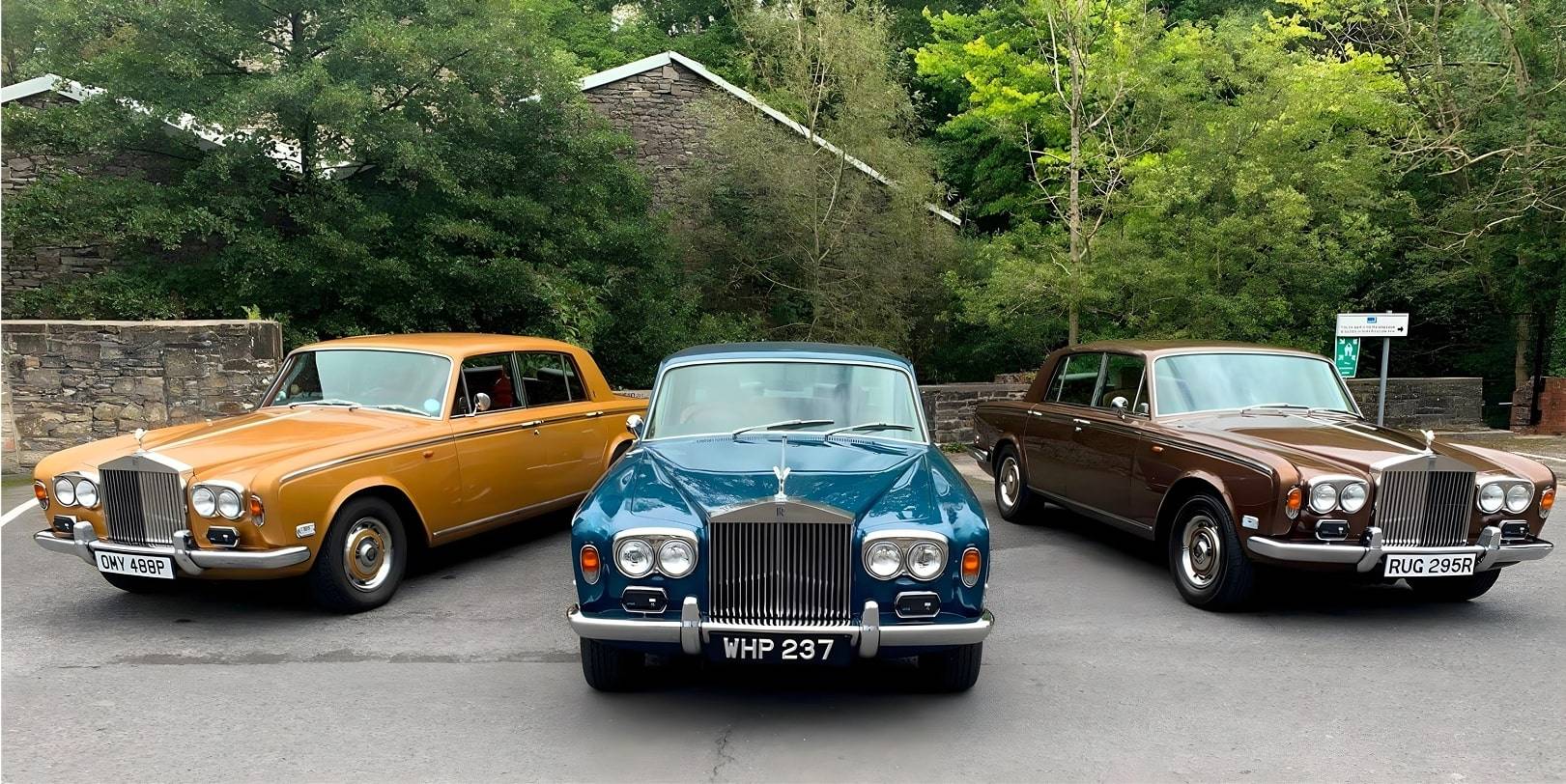
Gather Documentation
No matter what kind it is, there will always be documents required to sell your car.
These are the main pieces of documentation you'll need:
- V5C logbook — You will need a V5C logbook to transfer ownership and let the DVLA know you've sold your vehicle
- MOT certificate — to show the car has passed all required inspections
- Service records — to demonstrate you took good care of your classic
- Accident history — to help buyers understand why the car was restored (if at all)
- Receipts — for any parts, repairs or maintenance work done on the car
- Previous valuations — so everyone (you and your prospective buyers) knows what experts say it's worth
If you've had to replace anything on the car, parts receipts will prove to your buyer the replacement parts are genuine.
For classic cars that haven't been driven in a while, you might be missing up-to-date registration and roadworthiness documents. You can sell a car without an MOT certificate. You'll just have to arrange a tow because your buyer won't be able to drive off with it.
Determine a Realistic Price
"Realistic" means "not too high, not too low". Of course, you want to get as much as possible for it. But you also want to guarantee you actually sell it.
Setting the price for a classic car isn't the same as doing so for a regular vehicle. You can't just look at the going rate for similar models on AutoTrader or eBay and set your price accordingly.
For classic cars, you want to consider its condition, rarity, provenance and age (it might be worth more depending on the year).
The first step to setting a realistic price is getting a free, instant, no-obligation quote using our car valuation calculator.
Consider Getting an Expert Appraisal
Today's collectors are very knowledgeable when it comes to their purchases. They won't hesitate to put your listing under the microscope. So you want to make sure all the facts are correct and that your car is priced correctly.
The best way to do this is to get an expert appraisal. A trained eye can tell exactly how much your car is worth based on factors like its age, condition, and provenance.
Taking your car to a specialist serves a few essential benefits:
- You'll know exactly how much your asset is currently worth
- You can set a price that's realistic and attractive to buyers
- If you're unfortunate enough to have a buyer dispute the value, you can show your appraisal as proof
- Certified inspections and valuations reassure buyers your car is well-maintained and holds the value you claim it does
You could do the market research yourself, but there's a good chance you won't get the full picture. You'll more likely than not miss out on certain factors that might significantly impact the car's worth.
Pro tip: If the appraiser says the car’s worthless, the best way to get rid of it is to scrap it. Our offers factor in the prices of reusable components and precious metals in addition to scrap metal, so you’ll get a higher price than generic car-buying sites.
Take High-Quality Photos
Your car is only as good as the photos you take of it. If you want online buyers to stop scrolling and click on your listing, you'll need to make your photos stand out.
Here are a few essential photos you'll want to include:
- Multiple angles of the exterior
- Closeups of defining characteristics of your make/model
- Photos of the interior from different perspectives
- High-res photos of the engine and undercarriage
- Photos with a few props to tell your car's story, e.g. vintage garage tools
It's best to take your photos in natural light and in a clean, uncluttered setting.
Write an Accurate Description
Your description is important for a few reasons:
- Your potential buyers will read it and know right away if it's the car they're looking for
- It'll help your car pop up on its respective listing sites websites when they search Google for it
- It'll give people a good sense of how much work you put into your car and the time/money you spent on it
- It's your opportunity to highlight your classic car's personality
Most importantly, your description should include the make, model, year and color of your classic car. If you've upgraded, restored or modified the car in any way, include that too.
Talk about its condition, whether it's running or not and if you have any extra documents like repair receipts and professional appraisals.
Almost every classic car has some historical significance as well. Include a paragraph detailing things like:
- Its significance to the auto trade at that particular time
- Pop culture relevance
- Major events that took place the same time that car was popular
- Anything that could trigger nostalgia or make a history buff smile
Choose the Right Selling Platform
Selling a classic car is a little different in terms of where you’ll find the right buyers. Since classics are generally rare (as are their buyers), you’ll find the best results on platforms these kinds of people use.
- Classic car auctions — If you're looking for a targeted audience of passionate collectors, you’ll find them at classic car auctions. An auction is an opportunity to showcase your car to serious buyers who are willing to pay top dollar for a well-maintained classic beauty.
If multiple buyers enter a bidding war, you stand to earn more selling it at auction than any other way.
- Classic car dealer — Dealers know the market inside out. And they have an established customer base. If you have a car they’re interested in, this is the fastest route to money in the bank (but remember, they’ll take a cut).
- Online platforms — The internet is your best friend when it comes to finding niche car buyers. Several dedicated websites like eBay Motors, Car & Classic, and AutoTrader Classics cater to classic car enthusiasts.
They have a wide user base and are generally seen as trustworthy, so you’ll have an easier time selling your car privately on a site like these. Plus, you’ll usually be able to list them for free (and promote your listing for a low cost).
- Classic car shows and events — Showcases are magnets for vintage car enthusiasts. It’s where they spend their time on the weekends. They create the perfect ambiance to showcase your gem and connect with private buyers who share the same passion for classic automobiles.
- Classic car clubs and forums — Enthusiasts regularly scout these platforms looking for their next dream ride. By joining in and posting about your car, you'll reach a dedicated audience eager to add a classic beauty to their collection.
- Social media — If you post your car on TikTok and it goes viral, you stand an excellent chance at finding an interested buyer.
Advertise Strategically
Selling your car online means you can advertise it easily. This is why we recommend using online listing sites.
On marketplaces like Auto Trader, you can promote your vehicle for a few days, and it won’t cost you much.
It’s also smart to run promotional campaigns on social media. In terms of visibility potential, TikTok, YouTube Shorts, and Reels give you the best odds since nobody has to follow you to see it. They can just DM you if they’re interested.
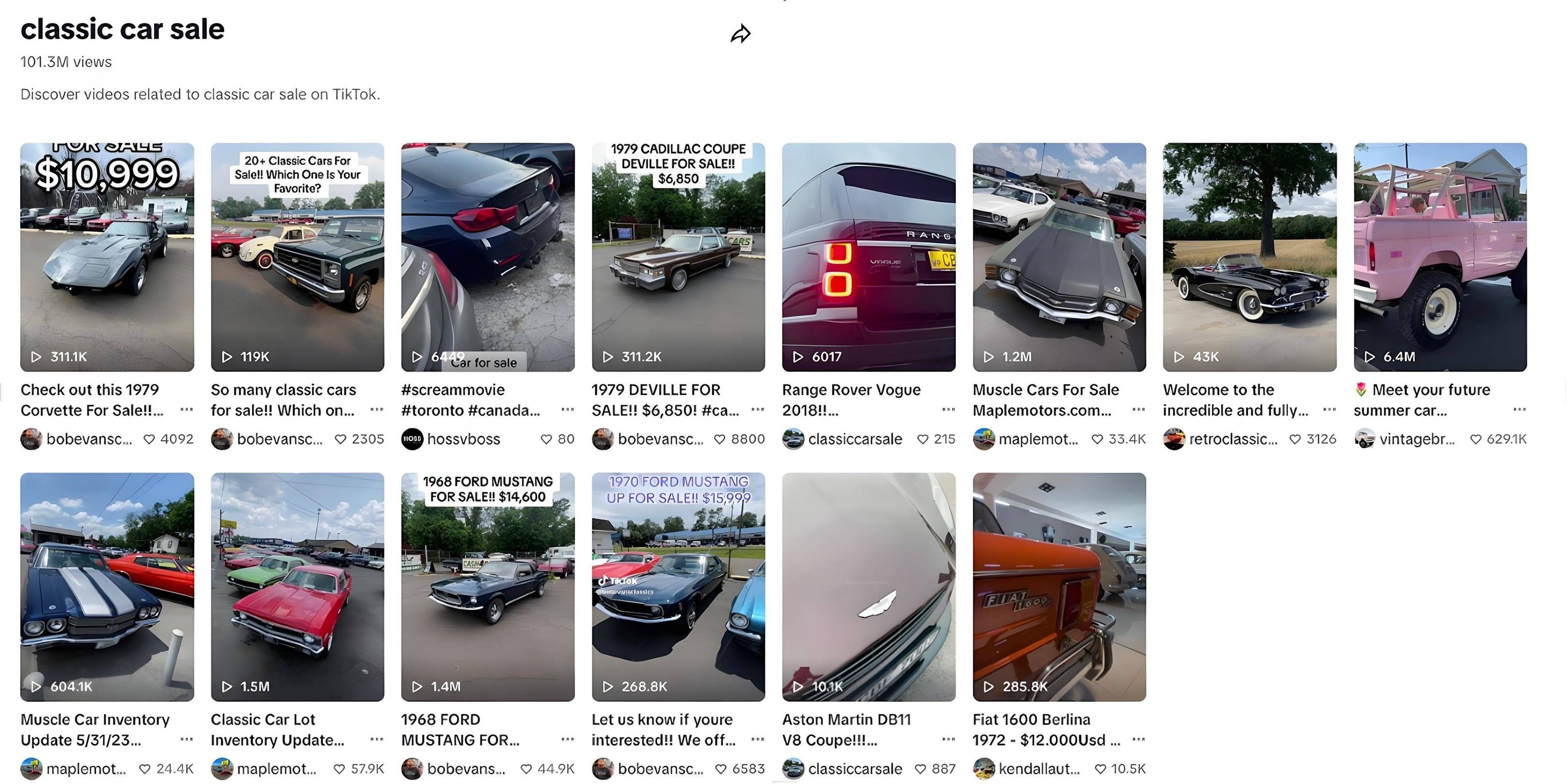
Respond Promptly to Enquiries
Time kills all deals — an adage in business and definitely a truism in transactions like these.
Route all enquiries from online listings and social media posts to WhatsApp, your telephone number, email or your social media inbox. And make sure you’re checking each of these at regular intervals.
If you’re serious about talking to qualified buyers only, you could send every potential buyer a Typeform or Google Form with questions around location, reason for interest, budget, availability for a viewing and preferred payment methods.
That way, you can pre-qualify everyone based on whether they can actually afford what you’re selling. Plus, you can weed out the ones who you may not feel deserve to own your car.
Negotiate the Sale
Especially with classic cars, there will always be some negotiation. Since the price is never set in stone (and you’re likely one of the only ones selling this exact car in the world), expect some back and forth.
Like we mentioned, most classic car buyers are well-versed in market dynamics. If you aren’t, they might have the upper hand.
That’s why it’s so important to have your car valued ahead of time. With professional input (and an authorised report to prove it), you’ll be able to hold your own against those who might know more than you.
One thing that will help you negotiate better is knowing your buyers’ interests. Ask everyone who views your classic car why they’re interested in buying it. If there’s a sentimental (or otherwise personal) reason behind it, remind them why it’s important during the negotiation.
When negotiating your classic car sale, it helps to set a low-end amount you’re willing to dip beneath. If someone comes below your cutoff, don’t be afraid to hold out a little while longer.
Finalise the Sale
Once you reach an agreement, organised the sale terms. In addition to price, reach agreement on how you’ll deliver the car, the day you’ll carry out the sale and how you’ll go about transferring the title to their name.
It’s unlikely your buyer will have £X,000 sitting around in cash. They will probably have to head home and get their finances in order. So we also recommend accepting a deposit to secure their purchase.
A security deposit is also a good way to test your buyer’s legitimacy. There are plenty of car selling scams, including those where a cheque or bank transfer won’t clear several days later.
Since classic cars often have higher value than regular ones, you definitely don’t want to risk anything.
Payment and Delivery
The best payment method, of course, is cash. You can verify it right away at a bank, and you won’t have to wait a few days for anything to clear.
Wire transfers and digital payments are also safe methods of payment, but you’ll have to wait for the payment to clear before you transfer ownership. This could take several days.
When dealing with classic cars, delivery is another important aspect. If you don’t have a valid MOT certificate or the vehicle isn’t taxed (which is common when a classic car sits in a garage), it’s not roadworthy. Your buyer cannot legally drive off with it, nor can they park it on a public road.
If this is the case, you or your buyer will have to arrange an alternative pickup. They could tow it themselves, you could deliver the vehicle somewhere it’s safe and legal to park or one of you can contact a towing company to handle it for you.
Transfer Ownership
You’ll transfer ownership using the V5C logbook. The process is simple.
- Complete the "New Keeper" section (Section 6). This section requires the buyer's details, including their name and address.
- Tear off Section 6. Then, enter the Date of Sale/Transfer and hand it to your buyer.
- Tell the DVLA you’ve sold the vehicle using the online transfer system. You’ll answer a series of Yes/No questions. You’ll also indicate whether you sold the classic car to a trader or buyer.
- If you have vehicle tax remaining on the classic car, the DVLA will automatically mail you a cheque in the post for the full months remaining.
- The DVLA will also automatically mail a fresh V5C to your buyer in five days or less through the post.
The moment you transfer ownership, your buyer will need to tax the vehicle if they plan to drive or park it on public roads.
Cancel Insurance and Registration
If you insured and registered your vehicle (you should have), your final step will be to cancel both.
Cancellation is simple. All you have to do is call your motor insurance company and let them know you won’t be needing the policy anymore. There may be some cancellation fees, but you’ll be refunded for the remaining full months on your policy.
You shouldn’t cancel your insurance until after you’ve sold the vehicle. If you do, you won’t be covered in the event of damage or theft.
Wrapping Up
When you’re selling a classic car, the process works a little differently. Since you’re likely the only one selling that car, the price isn’t as concrete as it would be if you sold a 2020 Tesla Model 3.
To make the most money from your sale, you need to get a professional appraisal, make sure everything is in working order and prove your parts are genuine. You’ll also have to sell it a little harder. Tell a story. Make the buyer want it.
Frequently asked questions
Everyone selling a classic car should get a professional inspection and valuation first. That way, collectors, traders and private car buyers will know exactly what they’re getting. Classic car market dynamics are also much different — having someone look at it before your buyers do will also help you set realistic expectations and negotiate better.
You can get a rough estimate of your car’s worth by researching online. But you won’t have much insight until you visit a reputable classic car dealership or mechanic. They’ll put your vehicle under the microscope, appraise it and send you out with a report of what it’s worth and why.
Believe it or not, classic cars don’t attract Capital Gains Tax in the UK because they’re considered “wasting assets”. It’s important to remember, however, that it is a criminal offence to sell an unroadworthy car to an unknowing buyer. If your car can’t be driven or is missing documents, you have to explicitly disclose this upfront.
The best platforms to advertise your car for sale are classic-car-specific classified sites. AutoTrader Classics has the largest user base, so it’s probably a good idea to start there. Social media is another option since you can hypothetically generate thousands of viewers from just one post.
Selling a classic car is often tedious. And if you aren’t an experienced collector or auto trade professional, you’ll have a hard time connecting with someone and negotiating. Working with the right consignment company could help you sell your car faster while still retaining a decent margin. They’ll advertise, show the car, negotiate and handle the sale on your behalf.
Classic car sales might draw someone from anywhere else in the world. If you have a valuable classic sitting in the garage, keep an open mind in terms of where your buyer is from. If they’re willing to fly out to see it, let them! If you plan to do it this way, make sure to outline your terms of sale (e.g., who handles shipping).
Some cars attract Capital Gains Tax in the UK, but classics don’t. Like regular street cars, they’re considered “wasting assets”, meaning they aren’t taxable income. That’s part of what makes them such a potentially great investment — even if they appreciate over time, you’re in the clear!
Even though the auction house will usually take their cut (usually about 10%), auctioning your car off could fetch you a higher sale price. If two or more buyers find your car extremely desirable, they may fight with one another to secure it. And if you aren’t happy with anyone’s bid, you can take it home and try a different crowd.
About Car.co.uk

Share on
Latest news & blogs




